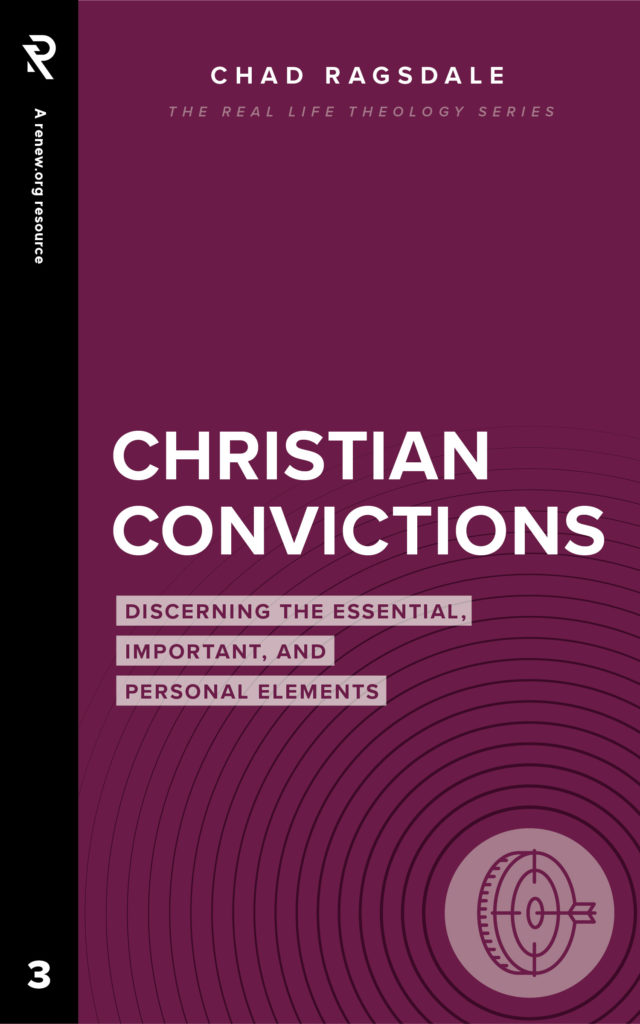
Permission to Say No to a Fight
I’ve been a Phoenix Suns fan ever since the early 90s. And, yes, I’ve always been bitter that Michael Jordan’s Chicago Bulls beat them in the ’93 NBA Finals. This year, for the first time since ’93, the Suns returned to the Finals, this time to face the Milwaukee Bucks.
In the middle of the series, I was in St. Louis teaching a couple of workshops at a ministry conference. There I ran into a group of a dozen or so people from Wisconsin. I explained that I was a Suns fan and apologized (kindly but insincerely) that the Suns had been beating up on their team (Suns were up 2-0 at the time).
Expecting to engage in a Midwest-nice version of the banter I’m accustomed to seeing between NBA commentators like Shaq and Charles Barkley, I was disappointed when none of the Wisconsinites I talked to even knew that their Bucks were in the Finals.
They simply didn’t care.
Here I was, not even from Arizona, trying to smack talk (in a very humble Christian way) their team that they didn’t even care about. (I found out that, if I’d been talking about the Green Bay Packers, that would have been a different story.) Bucks VS Suns wasn’t their fight. It was my fight—and it didn’t end well. The Bucks won the next four games and beat the Suns 4-2 to win the championship. Now, I have the Bulls and the Bucks to be bitter about…
As Christians, it can be tough to know which fights are worth engaging and which don’t really matter.
One of the most important questions facing the church in the coming years is this: What exactly is our fight? There will never be a shortage of issues to fight about. But if 2020 taught us anything about our churches, it’s that Bible-believing churches can still get mixed up on what battle they signed up for. Masks. Trump. Vaccines. Many of you have wounds from 2020 that haven’t closed up yet. You might have friendships that died in one of the battles in the War of 2020.
So I would like to take this opportunity to remind you that you have permission to treat some of the battles that parade your way the same way my friends from Wisconsin treated me. “Oh? That’s interesting. But no, that’s not my thing.”
On what basis do we have this permission? Well, it’s how Jesus handled quite a few of the battles that presented themselves to him.
Here are some examples:
- When asked to act as arbiter in a dispute between two brothers over their inheritance, Jesus declined to get involved but instead gave a general warning against greed (Luke 12:13-15).
- When the mother of two of his disciples asked him to help her sons achieve special status within the group, Jesus declined and responded by explaining how things work in his kingdom: greatness comes not from having special status but from serving people (Matthew 20:20-28).
- When invited into a theological argument about the right place to worship (in Judea or Samaria), Jesus sidestepped the argument and explained that soon it would only matter that you worship God in spirit (John 4:20-24).
- When he perceived that the people he had miraculously fed were planning to make him their king, he withdrew by himself. The next day, when the crowd found him, he preached a sermon that shocked them, and they left disappointed (John 6:14-66).
- When his disciples fought to prevent his arrest, Jesus commanded them to “Put your sword back in its place, for all who draw the sword will die by the sword” (Matthew 26:51-52).
- When asked when the kingdom would be restored to Israel, Jesus redirected his disciples’ focus on the mission of making disciples as his witnesses all over the world (Acts 1:6-8).
It must have been frustrating to present to Jesus an important battle he could totally win only to have him say, “No, not going to fight that one.”
Now, when it comes to our own decisions about which battles we engage, we need to be able to draw a distinction. On the one hand, it’s possible to cowardly or lazily disengage from theological battles we ought to fight as Christians. That’s wrong even if it means getting applause from the culture. On the other hand, it’s good to resist getting co-opted into battles which distract you from God’s mission for your life—even if it means getting booed from fellow Christians.
By being strategic about which battles you say yes and no to, you will likely frustrate three people:
- Yourself – It’s frustrating knowing that you are disappointing people. Yet it’s crucial as followers of Jesus for us to pick our battles wisely and let the rest go. It’s better to frustrate yourself than kill yourself trying to fight every cultural battle that presents itself.
- Would-be allies – A lot of people think that “evangelical” is synonymous with a particular way of voting. So, it’s frustrating for the people who thought they could “count you in” or “count on your vote” to realize that they aren’t your boss. The only one who can lead you like you’re a sheep is the Good Shepherd.
- Would-be enemies – It’s frustrating for the people who want to hate you to have a more nuanced opponent to reckon with. When dealing with a disciple of Jesus, they are surprised to find someone who isn’t reliably an outrage machine and who breaks the narrative with genuine love and intelligent discourse.
In fact, while we’re at it, let’s add one more person you’re going to frustrate by being strategic about which battles you say yes and no to.
You’ll frustrate the enemy of our souls. Imagine if you are Holy Spirit-led into crucial spiritual battles—armed with truth, righteousness, the gospel, faith, salvation, the Word of God, and prayer (you can read the whole list of “armor of God” in Ephesians 6:10-18). Instead of dealing with a predictable calculator of outrage and anxiety—depending on the buttons he pushes in us—our enemy will realize he’s dealing with a warrior.
The only one who can lead you like you’re a sheep is the Good Shepherd.








